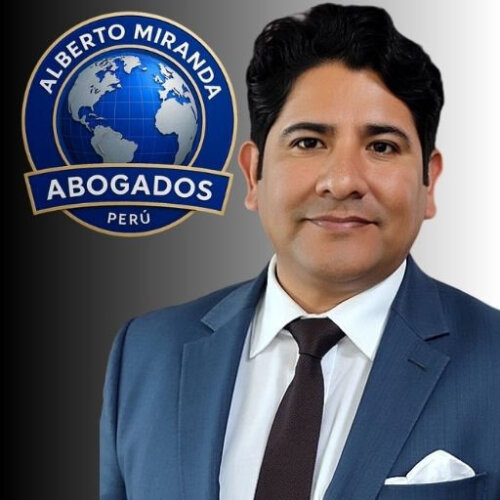Best Legal Document Lawyers in Peru
Share your needs with us, get contacted by law firms.
Free. Takes 2 min.
Or refine your search by selecting a city:
List of the best lawyers in Peru
About Legal Document Law in Peru:
Legal Document law in Peru is governed by a series of regulations and guidelines that dictate how legal documents should be created, signed, and enforced. These laws are in place to ensure that legal documents are valid and legally binding in a court of law.
Why You May Need a Lawyer:
There are several situations where you may require legal help with Legal Document in Peru. This may include drafting contracts, creating wills, handling property deeds, or resolving disputes over the validity of a legal document. A lawyer can provide expert guidance and ensure that your legal document is in compliance with Peruvian laws.
Local Laws Overview:
Key aspects of local laws that are particularly relevant to Legal Document in Peru include the Civil Code, Commercial Code, and Notarial Law. These laws govern the creation and enforcement of legal documents, as well as the role of notaries in validating legal documents. It is important to understand these laws to ensure that your legal document is legally enforceable.
Frequently Asked Questions:
1. What is the role of a notary in Peru?
In Peru, a notary is a public official authorized to authenticate legal documents and certify their validity.
2. Do I need to hire a lawyer to draft a legal document in Peru?
While it is not required, hiring a lawyer can ensure that your legal document complies with Peruvian laws and is legally enforceable.
3. How can I verify the validity of a legal document in Peru?
You can verify the validity of a legal document by having it notarized by a licensed notary public.
4. Can a legal document in Peru be challenged in court?
Yes, a legal document in Peru can be challenged in court if there are grounds to believe that it is invalid or fraudulent.
5. What types of legal documents are commonly used in Peru?
Common types of legal documents in Peru include contracts, wills, property deeds, and power of attorney documents.
6. How long is a legal document valid in Peru?
The validity of a legal document in Peru depends on the type of document and the specific terms outlined within it.
7. What are the consequences of notarizing a legal document in Peru?
Notarizing a legal document in Peru ensures its authenticity and can help prevent disputes over its validity in the future.
8. Can a legal document in Peru be translated into another language?
Yes, a legal document in Peru can be translated into another language for the convenience of the parties involved.
9. Are electronic signatures valid for legal documents in Peru?
Yes, electronic signatures are valid for legal documents in Peru, as long as they meet the requirements set forth by Peruvian laws.
10. How can I find a reputable lawyer for Legal Document in Peru?
You can search online for reputable law firms or ask for referrals from friends and family members who have used legal services in the past.
Additional Resources:
For more information on Legal Document in Peru, you can contact the Peruvian Bar Association or consult the official website of the Peruvian government for legal resources and guidance.
Next Steps:
If you require legal assistance with Legal Document in Peru, it is recommended to schedule a consultation with a qualified lawyer who can provide expert guidance and assistance in creating and validating legal documents.
Lawzana helps you find the best lawyers and law firms in Peru through a curated and pre-screened list of qualified legal professionals. Our platform offers rankings and detailed profiles of attorneys and law firms, allowing you to compare based on practice areas, including Legal Document, experience, and client feedback.
Each profile includes a description of the firm's areas of practice, client reviews, team members and partners, year of establishment, spoken languages, office locations, contact information, social media presence, and any published articles or resources. Most firms on our platform speak English and are experienced in both local and international legal matters.
Get a quote from top-rated law firms in Peru — quickly, securely, and without unnecessary hassle.
Disclaimer:
The information provided on this page is for general informational purposes only and does not constitute legal advice. While we strive to ensure the accuracy and relevance of the content, legal information may change over time, and interpretations of the law can vary. You should always consult with a qualified legal professional for advice specific to your situation.
We disclaim all liability for actions taken or not taken based on the content of this page. If you believe any information is incorrect or outdated, please contact us, and we will review and update it where appropriate.
Browse legal document law firms by city in Peru
Refine your search by selecting a city.








